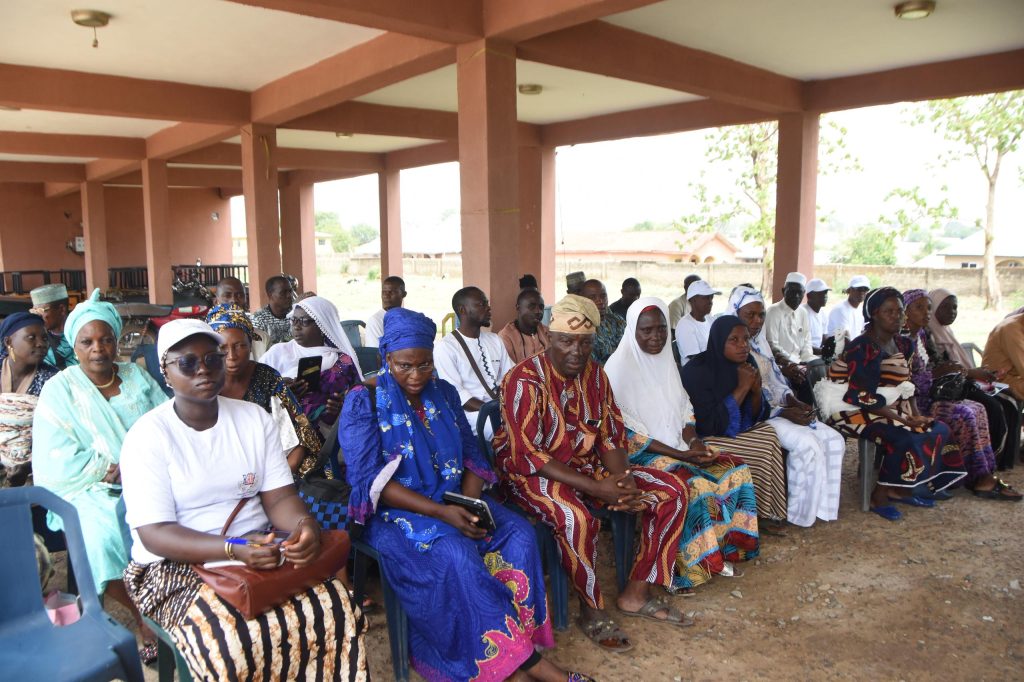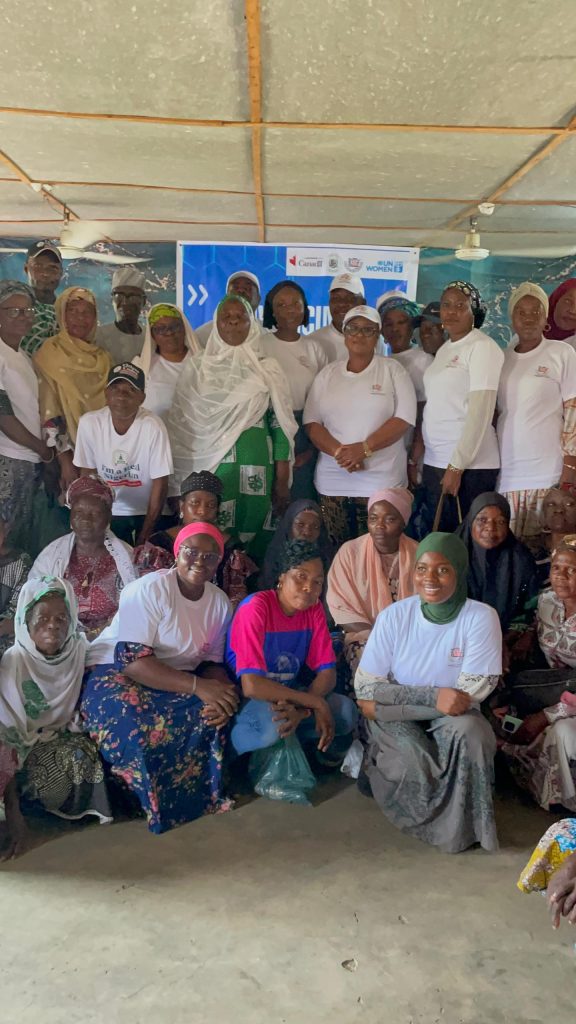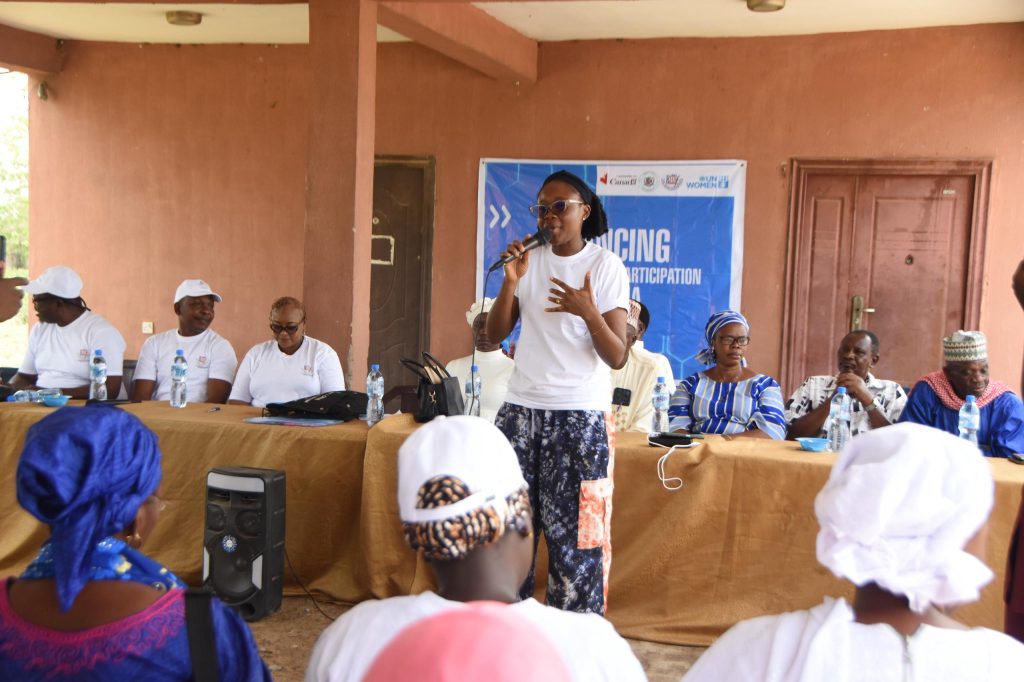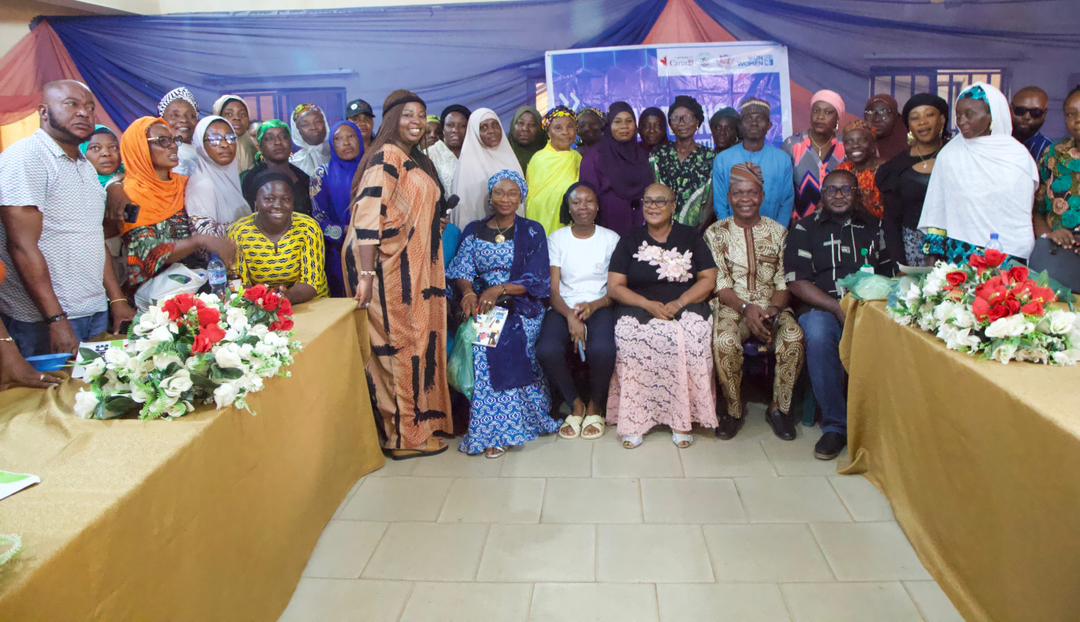As part of the implementation of the UN Women’s Advancing Women’s Political Participation (AWPP) project, the Royal Heritage Health Foundation (RHHF) has facilitated a series of town hall meetings across the three senatorial districts of Kwara State, Kwara Central, Kwara South, and Kwara North. These engagements aimed to mobilize grassroots support for the Reserved Seat Bill and promote constitutional reforms that increase women’s political participation and representation in governance.
The town halls provided inclusive platforms for dialogue and consensus-building among key stakeholders at the community and local government levels. The Kwara Central town hall was held at the Ilorin West Local Government Secretariat, the Kwara South meeting took place in Ajase, and the Kwara North session was convened in Bode-Sa’adu.
Each event began with an overview of advocacy objectives presented by local government representatives and the Chairperson of the Women’s Political Participation Working Group (WPP-WG). RHHF representatives then oriented participants on the purpose of the town halls, setting the tone for meaningful and participatory dialogue. Goodwill messages and reflections were delivered by representatives from the National Orientation Agency, political parties, religious and traditional institutions, all of whom expressed strong support for inclusive governance.

Facilitated discussions focused on identifying both the barriers and opportunities related to women’s political participation. A wide range of stakeholders, including Civil Society Organizations (CSOs), Persons with Disabilities (PWDs), women’s rights groups, political party leaders, youth representatives, and entrepreneurial groups, actively contributed to the conversations. These deliberations culminated in consensus-building sessions where participants developed memoranda to be used for constitutional advocacy.
The events concluded with closing remarks, group photographs, and informal networking, reinforcing a sense of unity and shared commitment.
The town halls recorded impressive participation from local government chairpersons, legislative speakers, councillors, women leaders, market leaders, royal representatives, youth organizations, religious leaders from CAN and WOWICAN, members of FOMWAN and NCWS, the Inter-Party Advisory Council (IPAC), and officers from the Nigeria Security and Civil Defence Corps (NSCDC). This diversity of voices enriched the dialogue and produced robust, community-informed recommendations.

Common themes emerged across the three districts. Participants emphasized the urgent need for widespread sensitization campaigns to educate women and communities on political rights, the constitutional framework, and the importance of inclusive governance. Calls were made for civic and political education programs to boost women’s confidence and knowledge to effectively engage in political processes.
There was unanimous support for legislative backing, especially the Reserved Seat Bill, as a means of institutionalizing gender inclusion in both elective and appointive positions.
Stakeholders strongly advocated for the establishment of structured mentorship and leadership development programs for women at the grassroots. These programs would focus on capacity building in areas such as public speaking, policy literacy, and strategic political networking. Participants also called for the elimination of structural and financial barriers such as high nomination fees and exclusionary party registration practices.
Several speakers urged political parties to adopt internal gender quotas and affirmative action measures to ensure consistent representation of women on candidate lists and in executive leadership positions.
Recognizing the powerful influence of cultural and religious institutions, stakeholders encouraged ongoing engagement with these groups to help shift entrenched narratives that restrict women’s leadership. The need for protective mechanisms to prevent political violence, harassment, and intimidation against women was also stressed, with calls for a secure and enabling environment for women aspiring to public office.
During the sessions, Christy Abayomi Oluwole, Chairperson of the Women’s Political Participation Working Group in Nigeria, delivered an inspiring address urging women to take proactive steps in their political journeys. She encouraged them to pick up nomination forms and register with political parties, emphasizing that becoming active political contenders is essential to transforming Nigeria’s political landscape.
Abimbola Seun Oyinloye, Esq., Project Manager of the Royal Heritage Health Foundation on the UN Women AWPP Project for Kwara and Borno States, described the town hall activities as a success and emphasized the importance of sustained momentum. She highlighted the need for continued support from both government and non-governmental actors to drive public acceptance of the Reserved Seat Bill.

She described the town halls as strategic platforms that brought together stakeholders across sectors for the signing of a Memorandum of Commitment. According to her, these events were vital steps led by the State Working Group, in collaboration with the Ministries of Women Affairs and the Offices of the First Ladies, to galvanize collective support for women’s political inclusion.
She noted that the town halls provided a unique opportunity to unite women’s rights movements, civil society, persons with disabilities, traditional and religious leaders, political actors, and government representatives, including governors, to build consensus and chart a path toward gender parity in political representation.
The consolidated memorandum developed through these inclusive deliberations will be formally presented to the Constitutional Reform Committee at the upcoming Zonal Public Hearings, ensuring that the voices of women and other marginalized groups are meaningfully reflected in Nigeria’s constitutional reform process.
